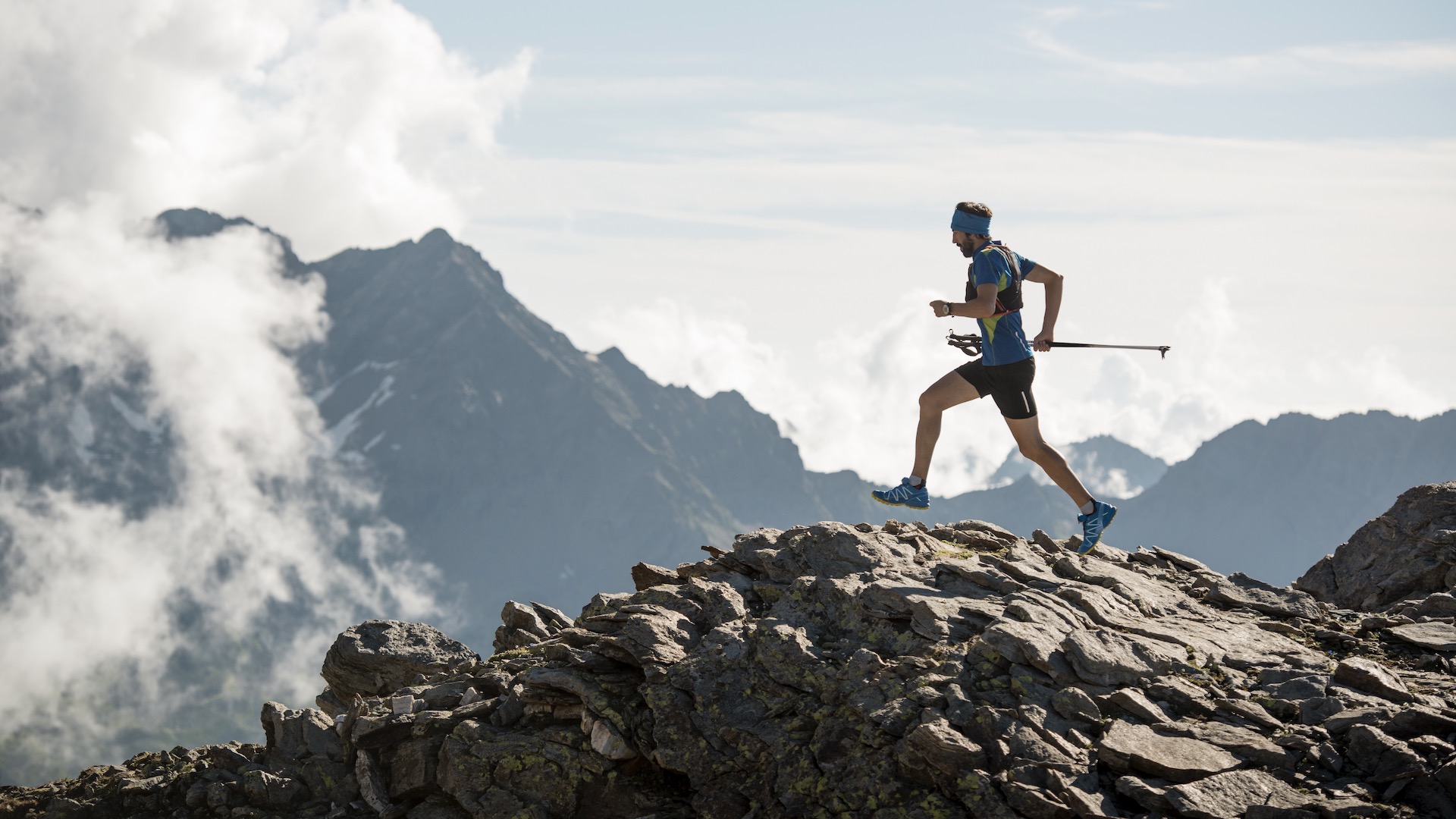
Last year, I traveled to Chamonix to cover the UTMB, the world’s most iconic ultra marathon which takes hardy runners on a 106-mile lap around Mont Blanc and through three different countries. We watched the runners take off from the starting line then went to our camp about 10 miles in to the race so we could cheer them as they completed their first climb. Then we enjoyed a celebratory evening of feasting and went to bed.
In the morning, when I woke up and checked in to see how the race was going, I remember having to do some serious mental gymnastics to get my head around the fact that for the entire time I’d been asleep, they’d been running. We went to one of the last aid stations on the course, where some of the front runners looked a bit bedraggled, then sped to the finish line to meet the winner, who in all honesty was looking fairly fresh.
I found myself asking some questions. Do ultra runners sleep during a race? And if so, how and where? Trust me, as someone who rarely gets in more than 15 km at a time in my trail running shoes, I have a lot of questions about how ultra runners do what they do, but how they sleep is highest among them. If you’ve been wondering the same thing, read on to find out how these titans of the trail stay upright, and where and when they go horizontal.
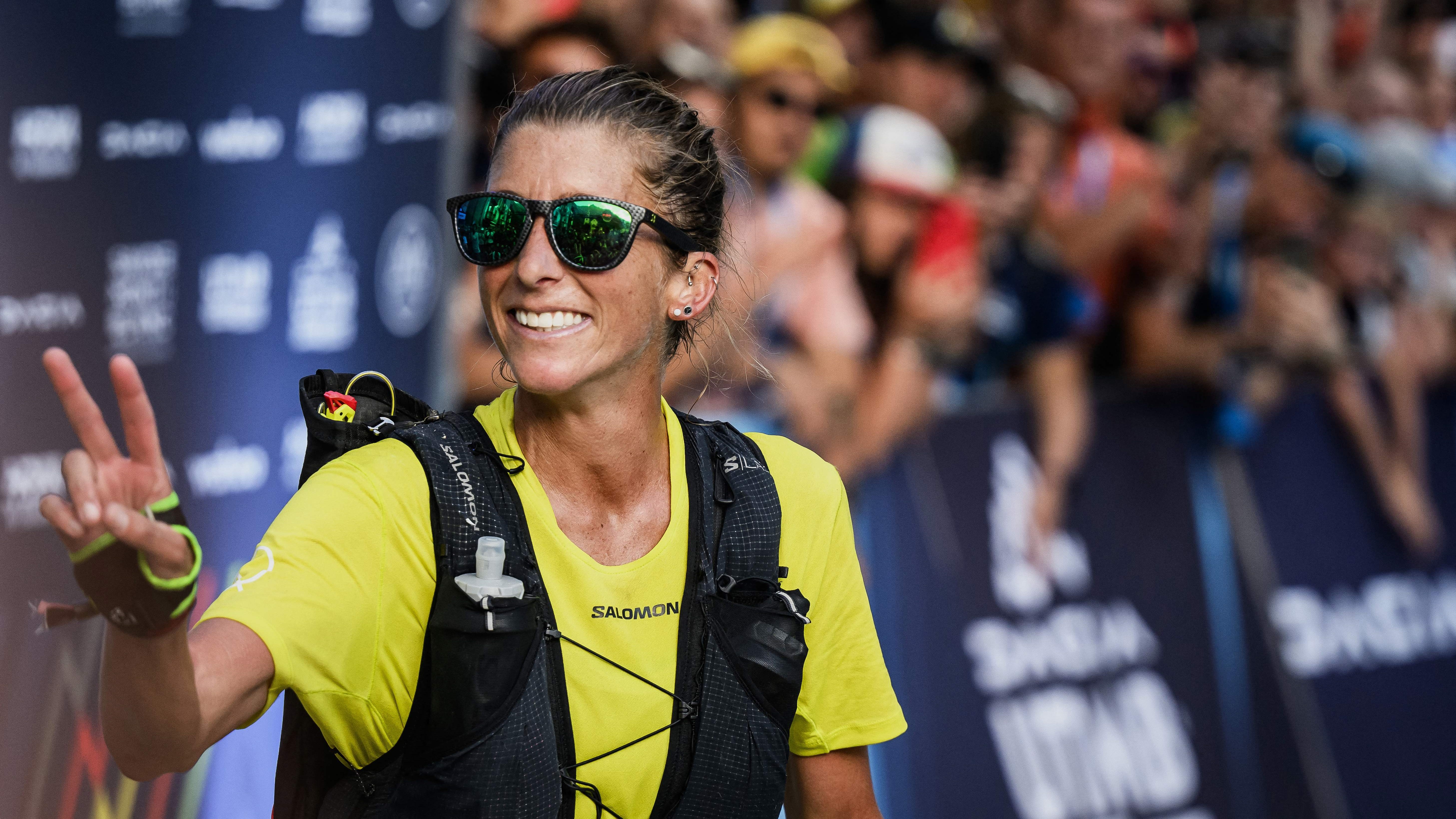
Do ultra runners sleep during a race?
The answer to this question is, it depends. Three main factors determine whether or not an ultra runner decides to catch some Zs during a race. First off, distance matters. Ultra running is defined as any distance longer than a marathon, so a 50 km race is technically an ultra. If you’re like me, that might sound like a long distance to run (and it is), but this isn’t typically a distance where runners would need to stop to sleep during the race. In fact, even once you get up to distances of 100 km, most runners will just push through, and a study of the 2013 UTMB discovered that 72 percent of runners said they didn’t sleep at all during the race.
Once the distances start to increase, however, most runners will take naps during the race. A 2024 study by researchers at CQ Univeristy in Australia surveyed 1,154 ultra runners in a 165 km and 111 km race and found that a full 77 percent of runners reported sleeping during these races.
In addition to the distance, whether or not an ultra runner sleeps during a race partially depends on the runner. The majority of runners might sleep during a race over 100 km, but when Courtney Dauwalter won the UTMB for the third time in 2023, she said she hadn’t felt the need for sleep because the race started at 6 p.m. so she was fresh for running through the night.
A very small 2023 study by French researchers of four ultrarunners in a 200-mile race found that the average total sleep time was between three and 4.7 hours during the race, but Dauwalter is reported to have slept for less than half an hour during the Moab 240 miler in 2017. So whether you sleep at all and how much is very much a personal decision.
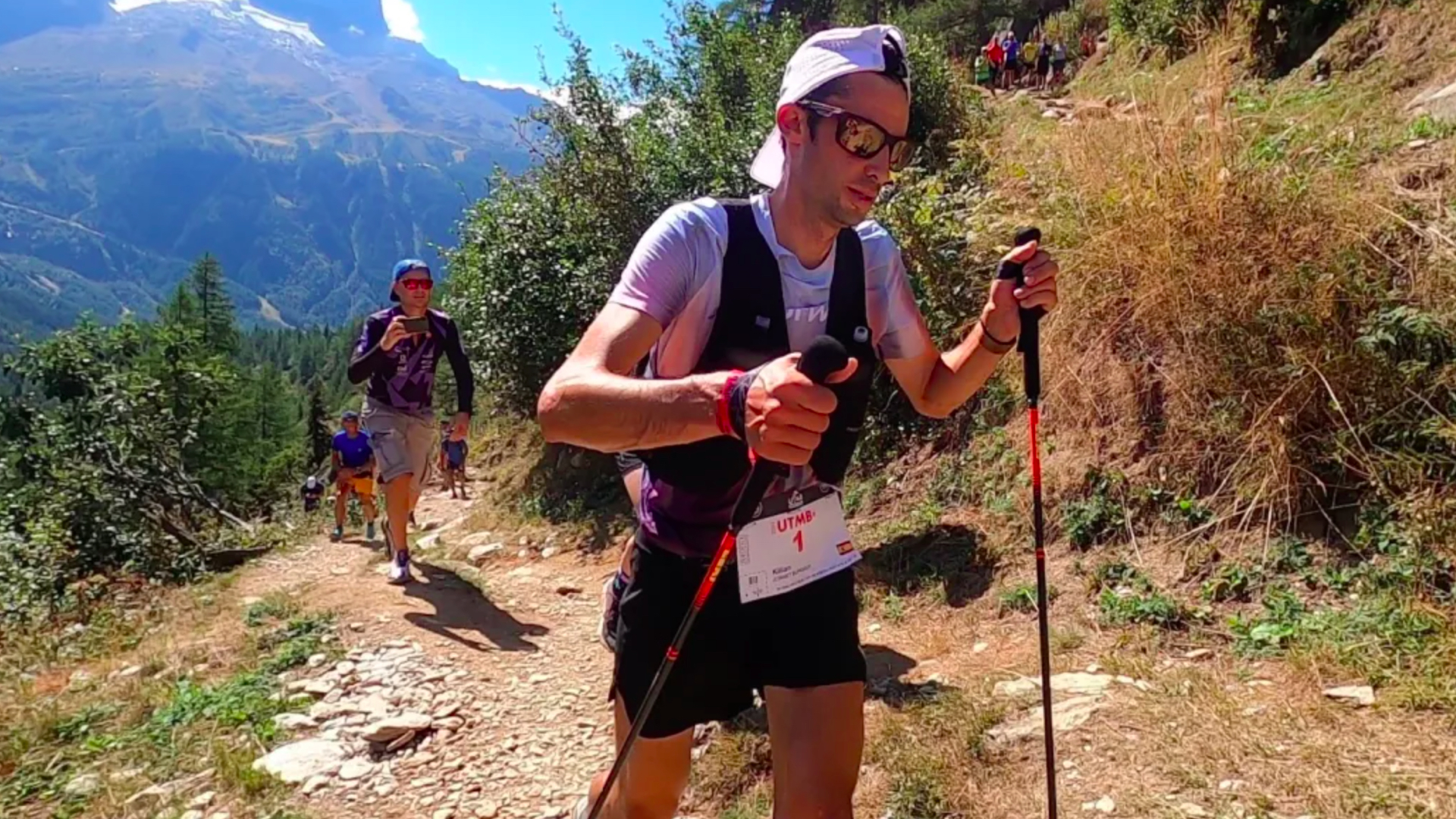
Finally, whether or not an individual runner sleeps during a race comes down in part to whether or not they’re trying to make the podium. If you're just trying to finish before the cutoff, there’s no great reason why you can’t lie down for 20 minutes every five hours. If you are trying to be a frontrunner, you’re probably not sleeping at all if you can get away with it, or will be taking short (20 minutes or less) naps that allow you to reenergize without having too much ground to make up when you wake up.
As for pre-race sleep, there are two approaches for ultra runners: one is to start training yourself for sleep debt by cutting back on sleep before the race, and another is to try to get more sleep before a race. Studies vary on whether either of these strategies impacts finishing time.
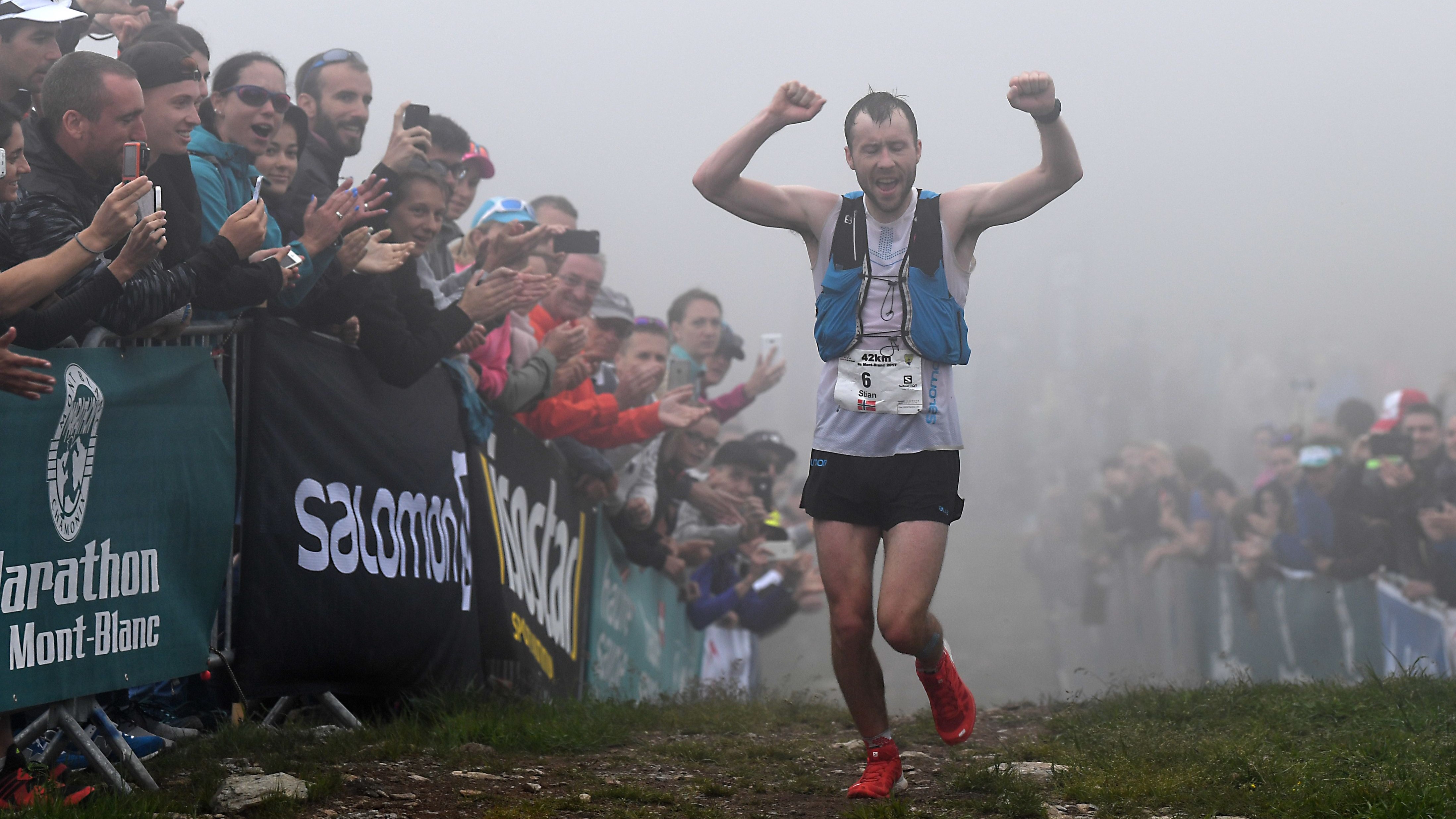
How do ultra runners sleep during a race?
No matter who you are and how far you’re running, if you’re sleeping during an ultra it will be in very small shifts. In the Australian study, researchers found that short naps lasting less than 30 minutes were the most popular strategy, while the French researchers found that the average nap lasted between 49 and 59 minutes for the 200-mile distance. On the other end of the spectrum, Dauwalter is one runner who’s a bit of a fan of the one-minute nap, as she shared during a 207-mile race in Tahoe in 2018.
If what you’re wondering is where ultra runners sleep, it can be anywhere along the race route. In a typical ultra, aid stations will be set up along the course where runners can stop to eat, refill water, take care of personal hygiene and even lie down for a short rest. Runners at the UTMB receive a “sleep bib” that they can pull on over their race bib to signal that they need a few minutes of quiet and don’t need assistance.
Aid stations are considered the safest place to lie down for a few minutes, and it’s where Australian researchers found most runners took 70 percent of their first naps. However, they found that as the race went on, more than half of the runners simply took naps wherever they were on the course rather than trying to reach the next aid station.
Many runners do just step off the trail and lie down for a sleep out in the open, perhaps using a running jacket as a blanket, but the organizers of the UTMB stress that sleeping out in the elements is dangerous. Leaving the trail is not recommended as you could become disoriented when trying to return, especially in the dark.
Finally, it’s not unheard of for runners to start falling asleep on their feet during an ultra, but that’s also not recommended.
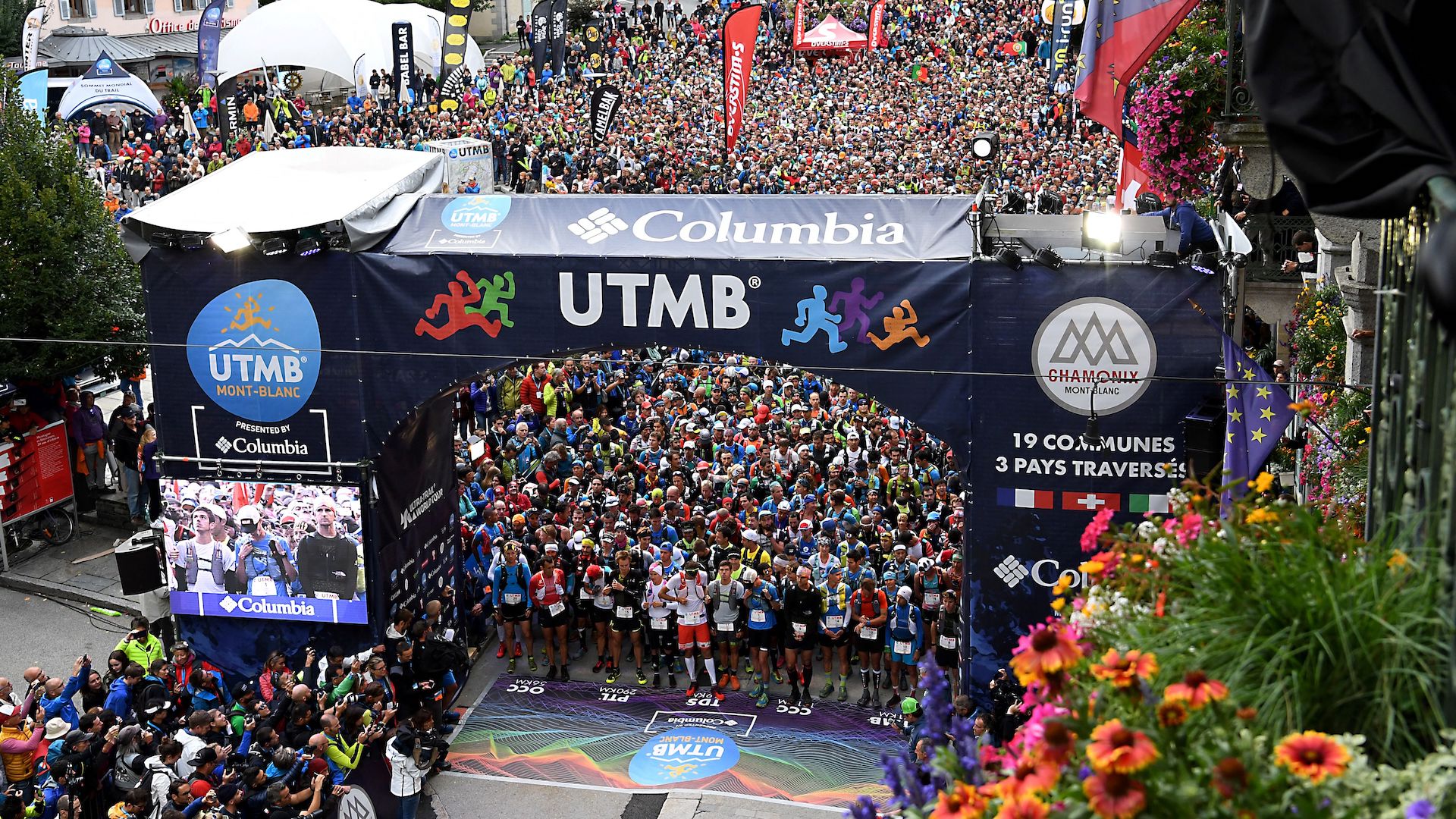
Should you sleep during an ultra marathon?
If sleeping for just a few minutes or hours over hundreds of miles of running is all sounding like a bit of a recipe for disaster, honestly, it can be. We already know that sleep is key to athletic performance, and lack of it can have some very immediate consequences.
The French study found that 22 percent of surveyed respondents believed that sleep deprivation during the race increased their risk of accidents in everyday life, while the Australian study found that 80 percent of respondents reported sleep deprivation symptoms such as hallucinations, known as “sleep monsters” and falls.
If you’re getting into ultra running, part of your training will need to involve learning your own needs and capabilities so that you can strategize your sleep as well as your nutrition and pacing. As the UTMB organizers warn, no matter how much you want to win, you always need to save some energy in case you’re confronted with challenging conditions, such as inclement weather.
All of that said, the study of the 2013 UTMB did find that those who didn’t sleep finished faster than those who did, so health and safety aside there’s an argument for keeping the power naps to a minimum if you really want to set a PB.







